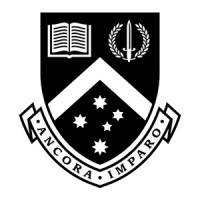Loading...

PhD Scholarship in Australian Archaeology
Monash University
Clayton campus, Melbourne, Australia
Dates
- Opening Date: Not Available
- Closing Date: 15-Dec-2024
Location
- Clayton campus, Melbourne, Australia
Salary
- Research Living Allowance, at current value of $35,013 AUD per annum 2024 full-time rate (tax-free stipend), indexed plus allowances as per RTP stipend scholarship conditions.
Responsibilities
- Archaeologically excavate, analyse and write-up results of excavations of caves, rock shelters or open sites in or adjacent to the Buchan limestone country.
- Focus on specialised topics such as archaeological faunal remains, geoarchaeology, stone artefact analysis, and archaeology of settlement systems.
- Lead publications on the topic of their PhD theses under the mentoring of GLaWAC and Professor David.
Requirements
- Excellent academic track record in archaeology and related disciplines.
- Undergraduate training in social anthropology or Indigenous studies is preferred.
- Competence in both quantitative and qualitative research methods is desirable.
- Hold an Australian (or equivalent international) Honours or Masters degree in a relevant field with a significant research component and first-class Honours/H1 awarded.
- Must be enrolled full-time and on campus for the scholarship.
- Must abide by GunaiKurnai cultural protocols and Monash and AIATSIS Codes of Ethics.
Benefits
- Access to funding to support fieldwork and archaeological analysis such as radiocarbon dating.
- Expert supervision from research leaders in Indigenous archaeology.
- Integration into a successful research agenda with a pre-existing structure.
- Opportunity to be part of a cohort of postgraduates and researchers committed to community-requested and community-led research.
Notes
- The successful candidate will need to enrol before 1 July 2025, with earlier enrolment possible.
- Further flexibility regarding the date of commencement of the PhD may be available.
- Applicants who already hold a PhD in archaeology will not be considered.